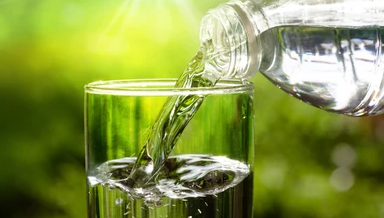Inside BENEO’s new pulse plant: pioneering sustainable protein from faba beans
The Thermo Scientific HAA9 Disinfection By-Products (HAAs) Application Workflow ensures accurate and reproducible determination of haloacetic acids in drinking water samples
Municipal utility laboratories, contract testing laboratories, and local or regional governing agencies performing water testing can now benefit from a new, validated application workflow using ion chromatography tandem mass spectrometry (IC-MS/MS) to achieve haloacetic acid (HAA) analysis in drinking water in accordance with the U.S. Environmental Protection Agency Method 557 (EPA 557).
The new Thermo Scientific Disinfection By-Products (HAAs) Application Workflow uses the Thermo Scientific Dionex ICS-6000 HPIC system and a Thermo Scientific Dionex IonPac AS31 column coupled with triple quadrupole mass spectrometry, to deliver a fast, sensitive and simple method, that has been developed for direct analysis of nine HAAs, bromate, and dalapon in drinking water samples.
The robust and validated workflow enables method precision and accuracy, following the EPA 557 regulation, which is paramount to testing drinking water safety. To minimize system downtime, trained field service personnel can provide after sales support for the complete IC and MS/MS system as required.
The validated IC-MS/MS workflow enables reliable and reproducible quantitation of target HAAs in drinking water per EPA method 557. Excellent separations of nine HAAs, bromate, and dalapon from common interference anions such as chloride, sulfate, and carbonate are enabled by the unique selectivity of the Dionex IonPac AS31 column.
The MS detection method provides high sensitivity and makes it possible to directly inject drinking water samples, therefore eliminating the complexity and variabilities of sample preparation. These method improvements allow time and cost savings for water testing laboratories and provide results that enable laboratories to more rapidly confirm the safety of drinking water.

